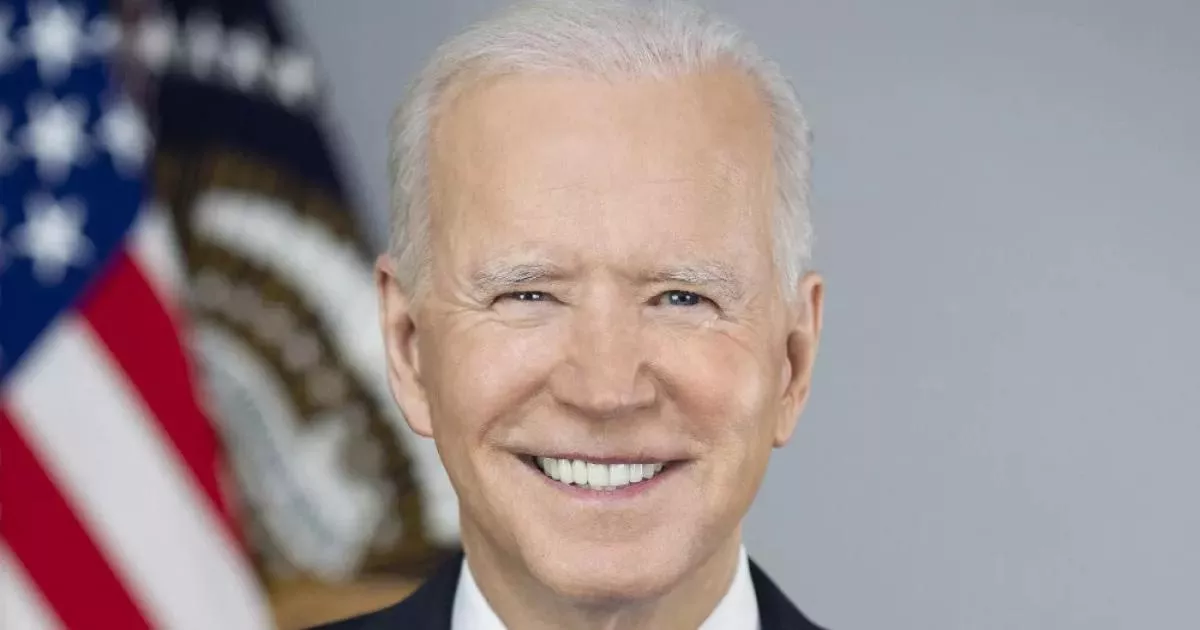Public opinion and media debates around Joe Biden—discover key moments of controversy.
Joe Biden, a member of the Democratic Party, served as the 46th U.S. president (2021-2025). Before his presidency, he was the 47th Vice President under Barack Obama (2009-2017) and represented Delaware in the U.S. Senate (1973-2009).
1976: Supported Measure Forbidding Federal Funds for Busing
In 1976, Biden supported a measure forbidding the use of federal funds for transporting students beyond the school closest to them.
1976: Used Passage by Hubert Humphrey
Two years earlier he had used a 1976 passage by Hubert Humphrey.
1977: Co-sponsored Amendment
In 1977, Biden co-sponsored an amendment closing loopholes in the measure forbidding federal funds for transporting students beyond the school closest to them.
1978: Amendment Signed into Law
In 1978, President Carter signed into law the 1977 amendment co-sponsored by Biden, closing loopholes in the measure forbidding the use of federal funds for busing.
1988: Robert Bork Nomination Hearings
In 1988, as chair, Joe Biden presided over the contentious U.S. Supreme Court confirmation hearings of Robert Bork. Biden reversed his previous approval of a hypothetical Bork nomination. Bork's nomination was ultimately rejected.
1989: Biden viewed as being close to the credit card company MBNA
Since 1989, Biden was viewed as being close to the credit card company MBNA, a major contributor to his campaigns, sometimes being called the "senator from MBNA".
1991: Clarence Thomas Nomination Hearings
During Clarence Thomas's nomination hearings in 1991, Joe Biden's questions were convoluted. After the hearing closed, Anita Hill accused Thomas of making unwelcome sexual comments. Biden did not permit testimony from other witnesses. The full Senate confirmed Thomas, with Biden opposed.
1991: Opposition to Authorization for Gulf War
In 1991, Joe Biden voted against authorization for the Gulf War.
1993: Vote on Homosexuality in the Military
In 1993, Joe Biden voted for a provision that deemed homosexuality incompatible with military life, effectively banning gay people from serving in the armed forces.
1994: Passage of Violent Crime Control and Law Enforcement Act
In 1994, Joe Biden helped pass the Violent Crime Control and Law Enforcement Act, which included a ban on assault weapons, and the Violence Against Women Act, which he called his most significant legislation. The 1994 crime law was unpopular among progressives and criticized for resulting in mass incarceration, and Biden later expressed regret for passing the bill.
1996: Vote for the Defense of Marriage Act
In 1996, Joe Biden voted for the Defense of Marriage Act, which prohibited the federal government from recognizing same-sex marriages, barring people in such marriages from equal protection under federal law and allowing states to do the same.
October 2002: Vote in Favor of the Authorization for Use of Military Force Against Iraq
In October 2002, Joe Biden, then head of the Senate Foreign Relations Committee, voted in favor of the Authorization for Use of Military Force Against Iraq, approving the U.S. invasion of Iraq.
2005: Called Vote a 'Mistake'
By 2005, Joe Biden called his 2002 vote in favor of the Authorization for Use of Military Force Against Iraq a "mistake."
2005: Passage of Bankruptcy Abuse Prevention and Consumer Protection Act
In 2005, the Bankruptcy Abuse Prevention and Consumer Protection Act passed, with Joe Biden being one of only 18 Democrats to vote for it. The bill had been vetoed in 2000 by Bill Clinton.
April 2009: Biden's Swine Flu Remark and Retraction
In April 2009, Joe Biden's off-message response to a question during the beginning of the swine flu outbreak led to a swift retraction by the White House, reviving his reputation for gaffes.
March 23, 2010: Biden's "Big Fucking Deal" Remark
On March 23, 2010, a hot mic picked up Joe Biden telling Obama that his signing the Patient Protection and Affordable Care Act was "a big fucking deal."
May 2011: Reports Suggest Biden Opposed Bin Laden Mission
Some reports suggest that in May 2011, Joe Biden opposed proceeding with the U.S. mission to kill Osama bin Laden, fearing failure could hurt Obama's reelection.
May 2012: Biden's statement on Same-Sex Marriage
In May 2012, Joe Biden publicly stated that he was "absolutely comfortable" with same-sex marriage, contrasting with Obama's "evolving" position. This statement, made without administration consent, spurred Obama to announce his support for same-sex marriage within days.
August 2012: Biden's 'Back in Chains' Remark
In August 2012, during the reelection campaign, Joe Biden made a controversial remark to a mixed-race audience, stating that Republican proposals to relax Wall Street regulations would "put y'all back in chains."
2014: The New Yorker Notes Biden's Embellishments
In 2014, The New Yorker noted that Joe Biden often embellishes elements of his life or exaggerates details, a trait also observed by The New York Times.
March 2019: Accusations of Inappropriate Physical Contact
In March 2019, multiple women accused Joe Biden of inappropriate physical contact.
April 2019: Biden Pledges to Respect Personal Space
In April 2019, following accusations of inappropriate physical contact, Joe Biden pledged to be more "respectful of people's personal space."
September 2019: Trump Pressures Ukraine to Investigate Biden
In September 2019, it was reported that Donald Trump pressured Ukrainian president Volodymyr Zelenskyy to investigate alleged wrongdoing by Joe Biden and his son Hunter Biden, leading to a political scandal and Trump's impeachment.
2019: Regret Expressed to Anita Hill
In 2019, Joe Biden told Anita Hill he regretted his treatment of her during the 1991 Clarence Thomas nomination hearings, though Hill said afterward she remained unsatisfied.
2021: Biden revokes Trump's security clearance
In 2021, Biden revoked Trump's security clearance for his role in inciting the January 6 Capitol attack.
November 2022: Discovery of Classified Documents at Penn Biden Center
In November 2022, President Biden's attorneys discovered classified documents from his vice presidency in a "locked closet" at the Penn Biden Center. The documents were reported to the U.S. National Archives and recovered the next day.
January 11, 2023: House Investigative Committee into Hunter Biden's Business Activities
On January 11, 2023, the House of Representatives launched an investigative committee into the foreign business activities of President Biden's son, Hunter, and brother, James. The committee also investigated alleged corruption related to the Hunter Biden laptop controversy.
October 2023: Hamas Attack on Israel and US Response
In October 2023, Hamas launched a surprise attack on Israel, leading to intensified conflict. President Biden affirmed support for Israel, condemned Hamas, deployed aircraft carriers to the region, and requested $14 billion in aid to Israel. He also pressured Israel to address the humanitarian crisis in Gaza and supported "humanitarian pauses".
December 13, 2023: House Vote to Formalize Impeachment Inquiry
On December 13, 2023, the House of Representatives voted 221–212 to formalize an impeachment inquiry into President Biden.
December 2023: No Evidence of Wrongdoing by Biden
As of December 2023, congressional investigations, including by the House Oversight committee, have discovered no evidence of wrongdoing by President Biden.
February 8, 2024: No Charges Filed in Classified Documents Investigation
On February 8, 2024, Special Counsel Robert K. Hur announced that no charges would be brought against President Biden regarding the investigation into classified documents found at his home and office.
February 2024: Alexander Smirnov charged with making false statements
In February 2024, Alexander Smirnov, a former intelligence informant involved in bribery allegations against Biden, was charged with making false statements. Smirnov admitted to spreading a false story provided by Russian intelligence to damage Biden's reelection campaign.
February 29, 2024: Killing of Palestinian Civilians Receiving Food Aid
Following the killing of Palestinian civilians receiving food aid on February 29, 2024, President Biden acknowledged that the current level of aid flowing into Gaza was insufficient.
March 2024: Public Disapproval of Israeli Conduct
Despite President Biden's support for Israel, a March 2024 Gallup poll indicated that a strong majority of Americans disapproved of Israeli conduct during the war.
April 2024: Gaza War Protests on University Campuses
Beginning in April 2024, widespread protests emerged on university campuses, denouncing President Biden's stance on the Gaza war.
September 25, 2024: House Resolution Condemning Afghanistan Withdrawal
On September 25, 2024, the United States House of Representatives passed a resolution condemning the Biden administration for the U.S. withdrawal from Afghanistan, with ten Democrats and all Republicans voting in favor.
December 2024: Pardoned Hunter Biden
In December 2024, Joe Biden pardoned Hunter Biden following his conviction on gun and tax charges.
Mentioned in this timeline

Lady Gaga born Stefani Joanne Angelina Germanotta is a highly...
TikTok also known as Douyin in China is a social...

Donald John Trump is an American politician media personality and...

Bernie Sanders is a prominent American politician currently serving as...

Vladimir Vladimirovich Putin is a Russian politician and former intelligence...
Home Box Office HBO is an American pay television service...
Trending

8 months ago Stanley Tucci faces wine tourism criticism; 'Tucci in Italy' gets renewed; trattoria impact.

3 months ago Alcaraz Rallies to Victory Against Fritz, Closing in on No. 1 Ranking

2 months ago Josh Hart shines with increased workload, making a case to stay in lineup.
4 months ago Daytona 500 Date Announced for 2027, Creates Fan Uproar Over Scheduling Conflicts

Micah Katt Williams is a well-known American stand-up comedian and actor He is recognized for his roles in various films...
11 months ago Latvia Imposes Entry Ban on Citizens from Russia and Belarus Amid Tensions
Popular

Kid Rock born Robert James Ritchie is an American musician...
The Winter Olympic Games a major international multi-sport event held...

XXXTentacion born Jahseh Dwayne Ricardo Onfroy was a controversial yet...

Barack Obama the th U S President - was the...

Michael Jordan often known as MJ is a businessman and...

Michael Joseph Jackson the King of Pop was a highly...
